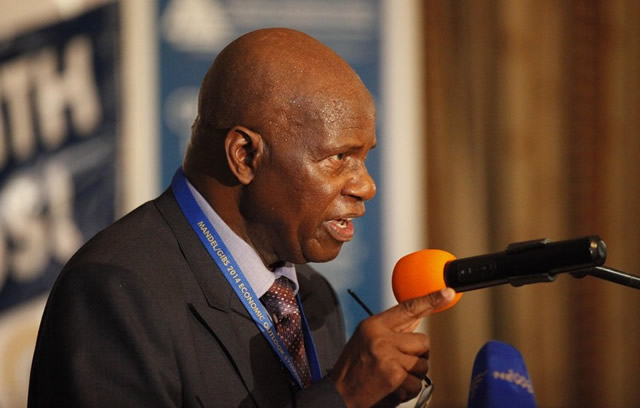US joins the gravy train

Golden Sibanda Senior Business Reporter
The United States government’s international development finance arm, Overseas Private Investment Corporation (OPIC), is set to invest up to $23 million towards low cost mortgage lending in Zimbabwe. A seven member OPIC delegation was in Zimbabwe last week to evaluate opportunities, as co-operation between the two countries extends to economic spheres in spite of the existence of sanctions imposed on the country by the US.
The Zimbabwe Democracy and Economy Recovery Act (ZDERA), of 2001, and provisions in subsequent appropriations acts, restricts the ability of the United States to cast its vote in support of new assistance to Zimbabwe from international financial institutions (IFI’s).
But Finance and Economic Development Minister Patrick Chinamasa last week met the OPIC delegation, accompanied by a commercial counsellor from the US Embassy in Harare, at his offices last Thursday to discuss investment in mortgage lending.
Minister Chinamasa said discussions that took place throughout last week when the US’ OPIC delegation was in the country, evaluating two to three local banks, were serious. In what may be a first of its kind, a US investor has been in the country scouting for investment opportunities into long-term mortgage lending to help resolve shortages of residential housing in the country.
“They have already indicated that they are going to invest $23 million into mortgage lending, but depending on the success of that investment and the operating environment, they can intensify that investment later,” the minister said after meeting the OPIC officials.
While finer details around the terms of the mortgage facilities are still under wraps, Minister Chinamasa said the funding will be cheaper and long-term; with high possibility of tenure of up to 35 years.
“Certainly, in my view from the discussion, it will be cheaper. They are interested in long-term financing. Mortgage lending is (by nature) not short-term and this is money that is being put out there for the long-term and we have been talking here about 20, 25 to 35 years . . . this is what this market wants to see.”
Minister Chinamasa said the discussions with OPIC also touched on the unique fact that most houses in Zimbabwe were built for cash with no mortgage registered against them meaning “that the entire asset is a dead asset,” which can be used to expand mortgage lending.
OPIC, which supports US investors who take lucrative opportunities, especially those with high socio-economic impact in emerging markets, will fund the US investor’s foray into mortgage lending.
“Right now, they have come to do due diligence on a number of commercial banks. The investment will be confined to residential mortgage lending. So, they are here to do due diligence of our commercial banks to see which ones merit their investment,” he said.
“OPIC, actually, lends funding to those US businesses that want to lend abroad, as such they are a development bank. What they have indicated is that their activity here depends on demands from US investors.
“If US investors want to invest in Zimbabwe they come to support, but are not prompted to come here by Zimbabwean investors. They come to support US investments in this country, either in the form of joint ventures or through mortgage lending,” the finance minister said.
He said they seek a variety of investments but are keen on JVs. This also comes when ShoreCap II, an international investment company said the deal struck between Zimbabwe and its international creditors on how the country intends to clear its $1,8 billion arrears with IFIs will rejuvenate business relations between Harare and the global community.
Minister Chinamasa said, the initiative by US investor, which apparently has blessings of the US government, is an important step in normalising economic relations between Harare and Washington.









Comments